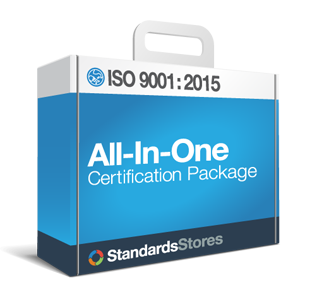ISO 9001:2015 Clause 4 Context of the Organization
- Determine, monitor and review external and internal issues
- Determine, monitor and review relevant interested parties
- Establish the quality management system scope
- Determine processes needed for the QMS as well as their required inputs, expected outputs, sequence and interaction, resource needs, responsibilities, risks, and opportunities
When you are implementing your QMS, the first step for ISO 9001 requirements is to thoughtfully align your business objectives and intent with the QMS. This process is titled “Context of the organization. The context includes defining influences of various factors on the organization and how they impact the QMS; the culture of the company, objectives, and goals, complexity of products, the flow of processes and information. It also requires a reflection of the size of the organization, its markets, and how they define customers and other interested parties. It also uses the context as a way to detect risks and opportunities and how it affects the QMS.
Clause 4 Context of the Organization
Clause 4.1: Understanding the Organization and Its Context
You must establish the aim of your organization, nature of business, and even identify the strengths, weaknesses, threats and opportunities. Organizations are to assess both internal and external influences in formulating and implementing a quality management system. In addition to traditional customer, economic and competitive factors, it notes that these influences can include how laws, technical developments and even political/cultural/social changes might impact the mission of the organization.
Clause 4.2: Understanding the Needs and Expectations of Interested Parties
This requirement addresses the desires and demands of all those who may have interest in the organization and could impact its mission and who, in turn, would influence its quality management system. You should also list out risks associated with stakeholders/interested parties. It asks those seeking ISO 9001:2015 certification to have an ongoing system for determining these interested parties and their requirements.
- Learn more about interested parties requirements.
Note: In February of 2024, ISO published an amendment to Clause 4.1 and 4.2 to include climate change considerations.
- Learn more about ISO 9001:2015 Amendment 1: Climate action changes
Clause 4.3: Determining the Scope of the Quality Management System
Defining the scope means to identify the boundaries of your QMS of which your organization will implement and get certified. As ISO 9001 is a generic standard, not all requirements may apply to your organization, this is where you will identify if requirements cannot be applied; you must justify the requirements that cannot be applied.
Because of the above more wide-ranging franchise, the standard requires the scope of the QMS to potentially be widened to include how the needs of those relevant groups noted above can be addressed within the QMS as it delivers its products and services.
The scope of the QMS must be documented and centered around the organization’s supplied services and products.
- Learn more about the Quality Management System Scope.
Clause 4.4: Quality Management System and Its Processes
Because the ISO 9001:2015 standard maintains the process approach from previous revisions (including the need for stated and verified inputs, outputs and constant improvement of the delivery process in between), it requires understanding and control of the order of each phase in the QMS processes and how one element affects another including:
- Measures used to gage effectiveness
- How those measurements will be taken
- What criteria will be used to indicate success
- How to analyze the process so that it can be continuously optimized to better achieve its goals
A process is needed for determining what capabilities, support and investment will be needed and what by what means this will be provided including:
- Who will be assigned to execute each phase and how these people will be empowered
- Determine both what may threaten execution of the process, and what benefits may come from proper process execution
- Documenting and updating the process, if necessary, and making it available to all involved
Learn more about ISO 9001 Processes, Procedures and Work Instructions and what learn more about what a process approach is.
Please note that certain text from the ISO 9001 standard is only used for instructional purposes. Standard Stores recognizes and respects the International Organization for Standardization (ISO) copyright and intellectual property guidelines.


